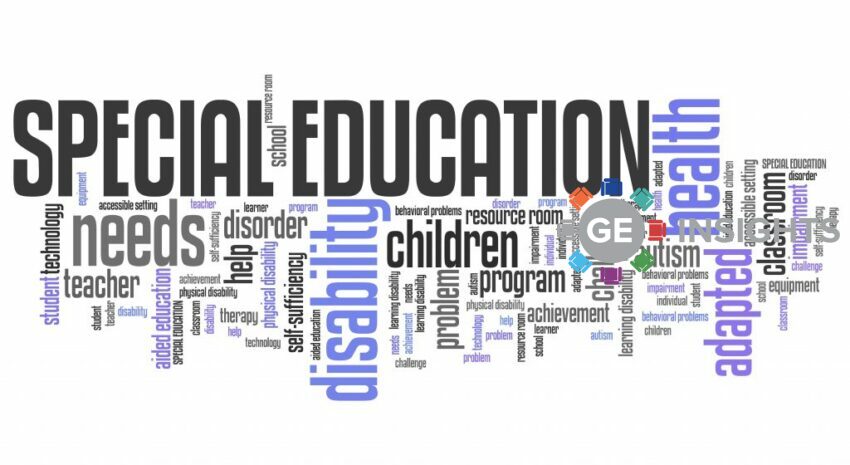Safeguarding children effectively requires a multi-agency response. Indeed, Yvette Stanley, Ofsted’s National Director for Social Care [1], has highlighted that the best local safeguarding arrangements are developed from a shared vision and shared values.
The article states that it is essential for leading agencies in the community to ensure there is active engagement in multi-agency safeguarding arrangements by other partner agencies, including in the voluntary sector, education, and adult services.
Partnerships that have a strong grounding in professional practice and a shared mission of protecting children, are more likely to be successful at multi-agency work and streamlining planning.
Multi-agency Safeguarding for Vulnerable Children in Bristol

Ann James, Director of Children, Families and Safer Communities at Bristol City Council [2] discussed their strategies for combining services to provide better safeguarding for vulnerable young people.
Bristol City Council strives for a holistic approach to safeguarding young people in the city. The work done has taken on board lessons from other local authorities. It is an ongoing project and is not the answer to all safeguarding problems, but it is a start.
The fundamental aims of the holistic, multiagency strategy of Bristol are:
- To strengthen families and to empower the community
- To meet the needs of vulnerable young people at the earliest point within communities and families
- A commitment to keep it local and to put resources back into the city
Keeping Bristol Safe Priorities
Bristol’s safeguarding arrangement brings partners together to deliver a place-based integrated safeguarding system. The Keeping Bristol Safe Partnership was formally constituted in June 2019 and combines Children, Adults and Community Safety arrangements [2].
Priorities include:
End-to-end excellence
- Integrated partnerships equipped to seamlessly meet the ever-changing needs of communities
- An offer of teams for both peer support and peer scrutiny
- Innovative quality improvement partnered with research
Citizens of Bristol as equal partners
- Ensuring individuals and their choices remain the centre of all work
- Finding different ways to work with citizens to improve policies, systems, and procedures
- Identifying and amplifying rarely heard voices in decision making
- Building a culturally competent workforce in the city
Domestic abuse response across the life-course
- Commission and deliver domestic abuse services which are trauma informed and recovery focused
- Proactive in outreach to victims and perpetrators
- Reducing demand for services as children live free from domestic abuse
Seamless transitions
- Integrated out of hours and crisis services for children and families
- Co-located Adult Safeguarding Front Door
- Development of Transitional Safeguarding Approaches for 16–25-year old’s
- Use of new technologies for safeguarding and partnerships
Safer Options (Violence Reduction Unit)
In Bristol, there is a whole system response to Child Criminal Exploitation and Child Sexual Exploitation. It seeks out serious violence and knife crime concerns through intelligence-led, evidence-informed and prevention-focused planning.
The multiagency integrated response has a central team at its heart, which includes an intelligence hub, specialist exploitation and missing person practitioners, and the police. The central hub focuses on vulnerable people most at risk.
The central team ensures that targeted responses are administered to young people through public health agencies and contextual safeguarding groups.
Contextual Safeguarding Peer Group Plans are in place for those that are being harmed in the community. They are deployed through responsive and dispersed outreach. Vulnerable young people are provided with:
- Education Inclusion Officers
- Youth Justice Prevention Officers
- Restorative justice and inclusion for children in care
- Young persons drugs and alcohol support
- Culturally appropriate counselling for peer groups after significant incidents
- Sibling group work
- PSHE education at schools
- St Giles Trust webinars for parents
- Local social media campaigns
- Independent domestic violence advisors
- Family support
Through conversations with the community and young people, Bristol City Council ensure that all participating agencies provide safe and accessible activities for children and young people. These voices are collected through:
- Community Engagement Officers
- Location and Communication Surveys
- Guardianship/bystander training
- Community training and development
Young people told Community Engagement Officers that they crave youth clubs and spaces for them to learn new skills in a safe environment. They asked the council to invest in building relationships between themselves and adults who have their best interests at heart.
The Safer Options project mandates that the central team and the deployed agencies must strive to raise awareness of Serious Youth Violence and Child Criminal Exploitation in all the work they do.
It also aims to improve police presence in areas of the city with high populations of vulnerable young people, as well as improving education and learning to ensure that young people have successful futures.
Changing the culture of safeguarding
Bristol City Council wants to ensure that the safeguarding of vulnerable young people is everyone’s business.
Covid-19 has encouraged agencies to come together to support the community through the strengthening of compassionate partnerships and mutual aid.
The culture of safeguarding in Bristol emphasises the benefits of training and working together, not only cross-agency but also with the community.
It also works to reduce bureaucracy and to increase evidence-informed and trauma-informed interventions. Data analytics are championed and information sharing between agencies is encouraged, to develop clear profiles of the needs of vulnerable individuals.
Learning Partnership West
Learning Partnership West has developed a project called the Routes Project in collaboration with Barnardo’s [3]. This operates in Bristol and works alongside the Safer Options (Violence Reduction Unit).
The project focuses on young people who are at significant risk of child criminal exploitation, gang activity and serious youth violence.
Learning Partnership West, Barnardo’s, and the Safer Options project work together as equal and trusted partners without hierarchy. They share the responsibility for young people through collaborative and open conversations in a central space that is characterised by the sharing of sector-based expertise.
The work of the Routes project was originally funded by the Home Office through the Early Intervention Youth Fund in 2018 [4]. It was a 15-month project which over its course gathered evidence of the positive impact it was having. The evidence extended the funding and also provided opportunities for additional funding from Bristol City Council. It aids the creation of safe relationships, spaces, and strategies for the vulnerable community. The project recognises that vulnerable young people are often fearful of accessing help and are locked into dangerous activities where they can’t speak out.
The young people that the Routes project supports:
73%
Have experienced multiple exploitation
59%
Have been victim of serious youth violence
61%
Have been victim of human trafficking
Incorporating Adapted Safeguarding Approaches into Future Strategies
Ann James highlighted the need to continue to build partnerships between agencies so that they become ever stronger and better at safeguarding the young people of Bristol.
It is essential that agencies collaborate in the future to improve:
- Data analytics and information sharing
- Exit from exploitation routes
- The health offer for children injured by criminal exploitation
- The transition to adulthood for vulnerable young people
- Further investment in community responses and specialist social work posts for those at the greatest risk
- Unified intelligence and quality assurance functions to create a central hub that is co-located with police
[1] Ofsted & Yvette Stanley, GOV.UK. 2018. Social care commentary: multi-agency safeguarding arrangements.
[2] James, Ann. 2021. Director of Children, Families and Safer Communities at Bristol City Council
[3] Routes Project. Learning Partnership and Barnardo’s
[4]The Home Office. 2018. Early intervention youth fund
Register FREE to access 2 more articles
We hope you’ve enjoyed your first article on GE Insights. To access 2 more articles for free, register now to join the Government Events community.
(Use discount code CPWR50)




